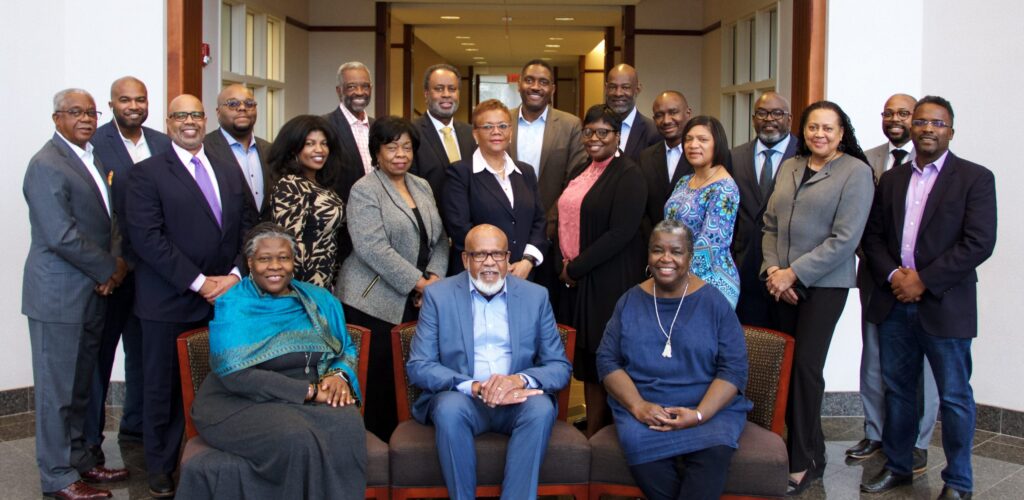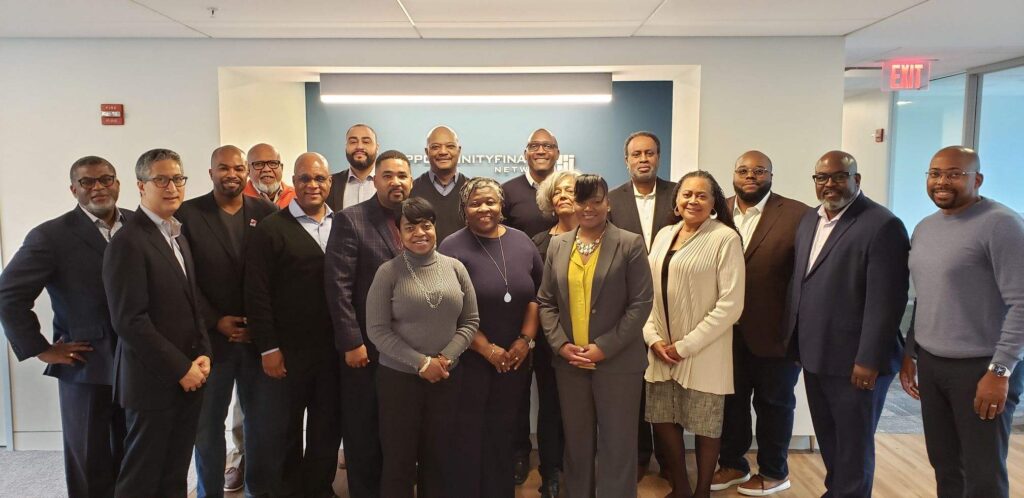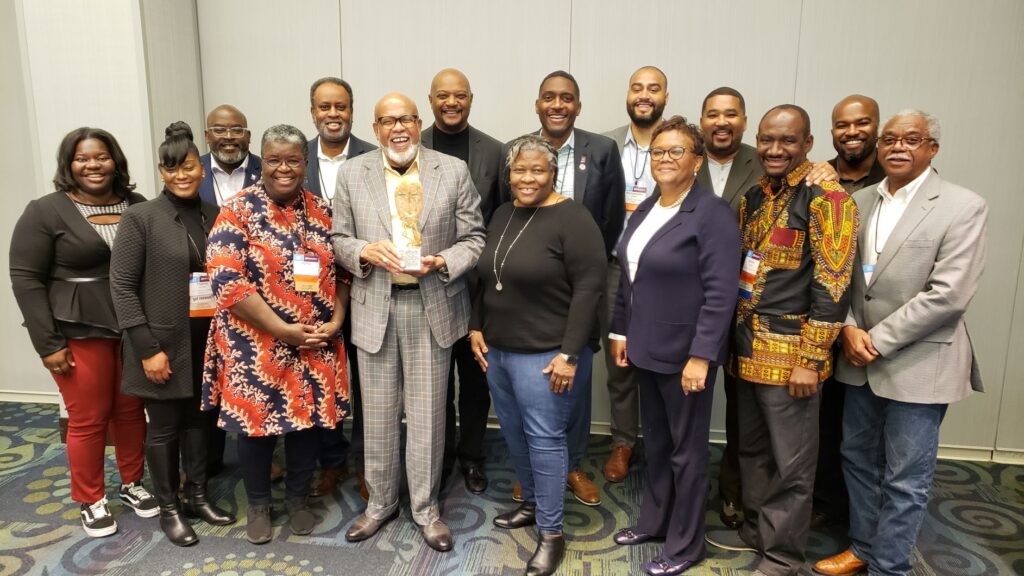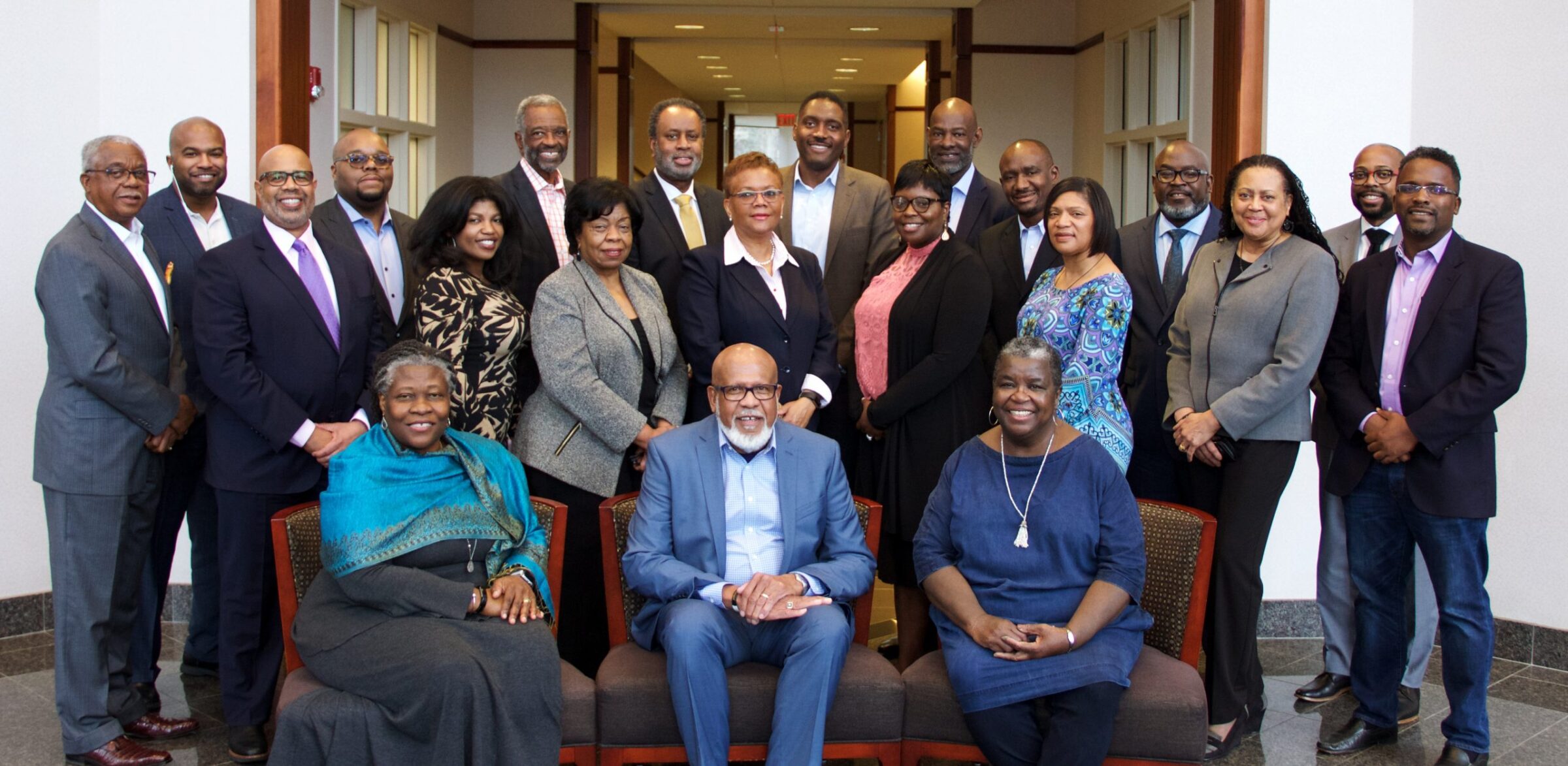
Lenwood Long has been immersed in the world of community economic development since the 1980s, and until 2019, he was the CEO and President of Carolina Small Business Development Fund (CSBDF), a North Carolina-based Community Development Financial Institution (CDFI) committed to fostering economic development in underserved communities. However, despite a long career in community finance dedicated to shrinking the racial wealth gap, Lenwood doesn’t have any plans of taking his foot off the gas anytime soon. Instead, he and other Black-led CDFI leaders are organizing like never before through the African American Alliance of CDFI CEOs (the Alliance).
“The reason for us coming into existence was to address the issues of inequality and the racial wealth gap,” Lenwood said. “There was a recognition that all of our communities suffer from an unequal distribution of resources, and we came together to have a voice to address those inequalities in this moment.”
The inequalities alluded to by Lenwood are staggering. According to Brookings, the median wealth for a white American family is $171,000, while the median wealth for a Black American family is $17,150 (in 2016 dollars). The resource and wealth gap spans homeownership, loan approval rates, education, and health, and the disparities are evident in Black-led CDFIs’ and Black entrepreneurs’ unequal access to capital and opportunities to scale. As Lenwood points out, the $6-to-$1 disparity between white and Black-led CDFIs didn’t happen overnight: it’s systemically been created and perpetuated over the course of centuries. The Alliance was launched in 2018 to help change that.

Of the Alliance’s three strategic goals, a major priority within its network of Black-led certified CDFI CEOs is to strengthen their fiscal and impact capacity using best practices to facilitate social and economic advancement in their communities. The nonprofit has grown from 21 members in its initial meeting in 2018 to 48 members in 2021, and Lenwood anticipates that the Alliance will have over 50 Black-led CDFI CEOs by the end of the summer. Although the Alliance’s members have physical presences in roughly 30 states, they provide services in all 50 states. Considering that there are an estimated 55 to 60 Black-led CDFIs in the U.S., the Alliance’s impressive membership numbers are indicative of the level of interest in knowledge sharing and difference-making.
It’s also demonstrative of the notion that there’s strength in numbers, which ties to one of the Alliance’s other strategic goals: to advocate for institutional and public policies that address the barriers to community and economic development, Black business growth, wealth creation, and financial protections in Black communities. “Our advocacy at the national level is where we can impact changes in a meaningful way that deals with resource allocation,” Lenwood said. “We want more than discourse. We want action items that reflect a real commitment, not just a short-term commitment, but a long-term commitment, because this is not a short-term problem.”

The Alliance has already experienced success with its advocacy efforts. For example, in the first iteration of the Small Business Administration’s Paycheck Protection Program, CDFIs were not included. However, thanks to voices like the Alliance’s, Congress has since emphasized and acknowledged the role that CDFIs play in keeping the country’s small businesses afloat. Congress allocated $12 billion to the CDFI Fund, with an emphasis not only on certified CDFIs but the minority community and minority CDFI and MDIs. “Congress didn’t just see the light or have an epiphany to engage CDFIs,” Lenwood laughed. “That was an intentional effort to educate and to bring awareness about the service-delivery capacity of CDFIs and the communities they represent, and about how CDFIs have been a lifesaver for so many small businesses during this pandemic.” Especially, the work of minority-led CDFIs
Not surprisingly, success for the Alliance would be to achieve the public policy changes necessary to make it so that the allocation of resources in the United States reflects the country’s diversity, especially for organizations, businesses, and CDFIs. That includes reducing the wealth gap and getting more money funneled to CDFIs and putting more dollars in the hands of minority-led CDFIs. The Alliance is similarly committed to creating a digital marketplace of Black-owned firms to help its members expand their capacity and efficacy, while providing marketplace firms with increased revenues to expand wealth creation in the Black community. Ultimately, the Alliance hopes the vetted marketplace will also be a platform that the public and private sectors will utilize to expand Black enterprise and increase the number of opportunities for Black entrepreneurs.

Incredibly, as the Alliance’s voice grows louder and louder in Washington D.C. and as the work of its member CDFIs ripples across Main Street U.S.A. Lenwood gives much credit to the Leadership Team of Donna Gambrell, Calvin Holmes, Victor Elmore, Inez Long, and Van Hampton for the quality time they provide to move the work of the Alliance forward. This is incredible given that they are CEOs with full-time jobs leading their respective CDFIs, meaning that they’re developing strategies and policies that they hope will impact national legislation during their evenings and weekends. “These CDFI leaders are so dedicated, and they put in an inordinate amount of time,” Lenwood said. “But that’s because we truly believe that our combined, unified voices can make a difference to address not only impact the racial wealth gap but will have transformational impact on the communities our members serve.”
Learn More
- The African American Alliance of CDFI CEOs is the only organization leveraging African American CDFI CEOs’ decades of expertise, relationships, and intellectual capital to change the odds and the outcomes for African Americans in underserved communities across America.
- CNote is a women-led impact investment platform that uses technology to unlock diversified and proven community investments to generate economic mobility and financial inclusion.


